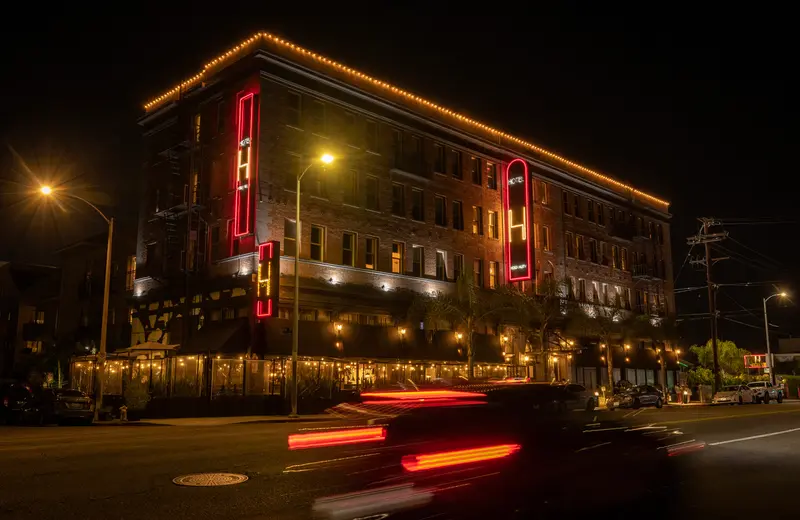This article was produced for ProPublica’s Local Reporting Network in partnership with Capital & Main. Sign up for Dispatches to get stories like this one as soon as they are published.
The Los Angeles Housing Department has sent warning letters to the owners of 17 buildings meant for low-cost housing, demanding that they stop renting rooms to tourists in violation of city law.
The action follows a Capital & Main and ProPublica investigation that found 21 buildings, known as residential hotels, had advertised short-term rentals on travel websites despite a 2008 ordinance aimed at preserving residential hotels for affordable housing. Residential hotels mostly consist of basic single rooms and are often the only housing that many low-income, elderly and disabled people can afford.
The Los Angeles City Council will also soon consider a motion, filed last week, to require the Housing Department to report on its enforcement of the residential hotel law. The motion, in response to Capital & Main and ProPublica’s reporting, raises the possibility of creating a right for individuals to sue landlords who convert such housing without the city’s permission.
“I know very dramatically the impact of not having that enforced because that means more houses, more low-income units, that we as a city have to figure out how to build,” City Councilmember Bob Blumenfield, who presented the motion, said in an interview. “It means more people on the street and more services and more costs and more human suffering.”
The motion, which was seconded by City Councilmembers Monica Rodriguez and John Lee, notes that as the city contends with rising construction costs for affordable housing and a shortage of landlords who will accept emergency or long-term housing vouchers, “the loss of residential hotel rooms to tourist units may be exacerbating our homelessness crisis.”
Much of the information that the councilmembers requested is already supposed to be reported annually by the Housing Department under the terms of the residential hotel law. But in the 15 years since the ordinance was passed, the Housing Department hasn’t filed the reports, according to agency officials and the city clerk’s office.
In issuing the notices to comply last month, the Housing Department cited violations of both the residential hotel law and the city’s home-sharing ordinance, which is meant to crack down on illegal rentals on sites like Airbnb. The department used both laws “to aggressively pursue compliance,” Housing Department spokesperson Sharon Sandow said in an email.
Among the hotels cited were three that were highlighted in our initial story: the American Hotel in the Arts District, and the H Hotel and Hometel Suites, both in Koreatown.
The American’s owner, Mark Verge, said he’s hired an attorney and will discuss the matter with the Housing Department. “Our argument is we are a hotel,” said Verge, who previously said he had been unaware of the American’s residential designation. But he added, “Whatever they come up with will be fine.”
Becky Hong, the Hometel’s general manager, said in an email that the hotel has submitted documents to the city in response to the notices. Neither the H Hotel’s owner nor its manager responded to emails or a call for comment. Previously, the H’s manager said the hotel hasn’t accepted long-term residents since 2019 and has asked the city to remove its residential designation.
All three hotels continue advertising rooms to tourists on their websites.
The citations and the City Council motion are the latest fallout from Capital & Main and ProPublica’s reporting. In July, Mayor Karen Bass asked the Housing Department to investigate the 21 residential hotels in our story and report back on how to improve enforcement efforts.
Blumenfield’s motion also requests that housing officials recommend ways to strengthen the ordinance and asks the department to identify potential funding sources and additional resources needed to enforce it.
The Housing Department has pointed to short staffing as one reason it has struggled to enforce the residential hotel law. But Blumenfield, who chairs the council’s budget committee, said the agency hasn’t requested additional funding for enforcement.
“Nobody’s ever come to me and said, ‘We don’t have the money to enforce our residential hotel conversion’” law, he said. “Now that I’m aware of it, I’m going to do what I can to make sure that it does get enforced.”
Blumenfield’s motion has been referred to the council’s Planning and Land Use Management Committee. If approved, it will go to the full City Council for a vote.












